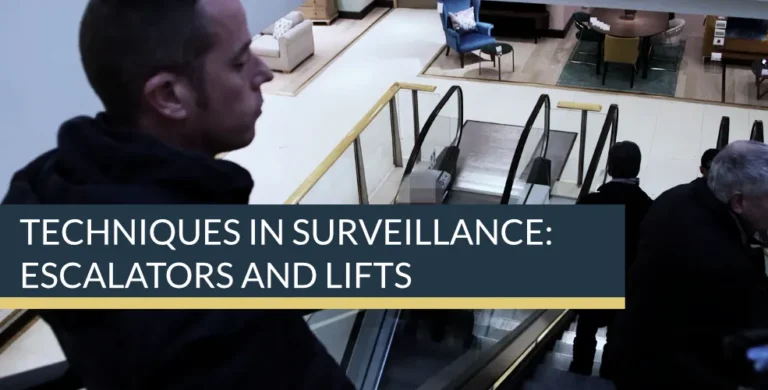The 8 behavioural characteristics of a Cheating Parner
Is employee absenteeism crippling your business?
In the latest episode of Titan PI TV, viewers are invited behind the scenes of one of the UK’s leading private investigation agencies. Broadcasting from Titan’s Derby headquarters, but with a reach that spans ten offices from Truro in the southwest to Manchester in the northwest, the show offers a rare glimpse into the realities of modern investigative work. This week, I, Simon Henson—your host and managing director—delve into a topic that is as sensitive as it is prevalent: the eight behavioural characteristics of a cheating partner.
Infidelity is a subject that evokes strong emotions and can have devastating consequences for those involved. At Titan, we are often approached by individuals who suspect their partners of being unfaithful. While every relationship is unique, there are certain patterns of behaviour that frequently emerge in cases of infidelity. In this article, I will expand upon the key points discussed in our latest episode, providing a comprehensive guide to recognising the tell-tale signs of a cheating partner.
1. Absence: The First Red Flag
One of the most common indicators of infidelity is a sudden increase in a partner’s absence. Has your partner started spending more time away from home? Are they working late more often, attending company events, or embarking on business trips with unusual frequency? While professional commitments can and do change, a marked shift in availability—especially when accompanied by vague explanations—should not be ignored.
At Titan, we have seen countless cases where a partner’s newfound “overtime” or “work trips” were, in reality, cover stories for clandestine meetings. It is important to approach such changes with an open mind, but also with a healthy dose of scepticism if the explanations do not add up.
2. Appearance: A Sudden Transformation
Another classic sign is a noticeable change in appearance. Is your partner suddenly investing in new clothes, altering their hairstyle, or becoming more concerned with their physical fitness? Perhaps they have joined a gym, started using fake tan, or become preoccupied with their body image and vanity.
While self-improvement is to be encouraged, a dramatic transformation—especially if it coincides with other suspicious behaviours—can be a sign that your partner is seeking to impress someone new. In our experience, such changes are often motivated by a desire to attract or maintain the interest of another person.
3. Defensive: Defensiveness and Gaslighting
When questioned about their whereabouts or changes in behaviour, a cheating partner may become defensive. This defensiveness can manifest as irritation, anger, or even accusations directed back at you—a psychological tactic known as gaslighting.
For example, if you express concern about their fidelity, they might respond by accusing you of being unfaithful or overly suspicious. This reversal not only deflects attention from their own actions but can also leave you doubting your instincts and feeling guilty for raising the issue in the first place.
Gaslighting is a powerful tool in the arsenal of a cheating partner, designed to undermine your confidence and obscure the truth. If you find that reasonable questions are met with hostility or counter-accusations, it may be time to look deeper.
4. Distance: Emotional Distance
Intimacy is often one of the first casualties of infidelity. Has your partner become emotionally distant? Do they avoid physical contact, such as holding hands or cuddling? Has the frequency or quality of your intimate moments diminished?
A partner who is emotionally invested elsewhere may struggle to maintain the same level of closeness with you. This can manifest as a reluctance to engage in meaningful conversation, a lack of interest in shared activities, or a general sense of detachment. While all relationships go through phases, a sustained period of distance—especially when combined with other warning signs—should not be dismissed.
5. Guilt: Guilt and Overcompensation
Guilt is a powerful emotion, and many unfaithful partners attempt to assuage their conscience by overcompensating. This might take the form of unexpected gifts, excessive displays of affection, or an unusual eagerness to please.
Have you noticed your partner buying you flowers for no apparent reason, or showering you with compliments and attention? While these gestures can be genuine, they may also be an attempt to mask feelings of guilt and divert suspicion. At Titan, we have observed that such behaviour often coincides with periods of infidelity, as the cheating partner seeks to balance their actions with acts of kindness.
6. Instinct: Trusting Your Gut
Perhaps the most important characteristic is not found in your partner, but within yourself: instinct. If something feels off, it often is. Human intuition is a remarkable tool, honed by millions of years of evolution to detect subtle changes in behaviour and environment.
We recently worked with a client who was convinced their partner was having an affair. Their gut instinct told them something was wrong, even though they could not pinpoint exactly what it was. After conducting surveillance, we discovered that the partner had, in fact, lost their job and was too embarrassed to admit it. While there was no infidelity, the client’s instinct was correct in sensing a significant change.
The lesson here is to trust your feelings, but also to seek evidence before jumping to conclusions. Instinct can guide you, but it should be balanced with rational investigation.
7. Secretive: Secrecy and Concealment
A sudden increase in secrecy is another hallmark of infidelity. Is your partner being evasive about their whereabouts or activities? Have they become protective of their mobile phone, perhaps changing the unlock PIN or keeping it within arm’s reach at all times?
Modern technology has made it easier than ever to conceal communication, and many unfaithful partners go to great lengths to hide their digital footprint. If your partner is suddenly secretive about their devices or online activity, it may be cause for concern.
At Titan, we have encountered numerous cases where a partner’s reluctance to share information was a clear indicator of hidden behaviour. Transparency is a cornerstone of any healthy relationship, and a lack thereof should not be ignored.
8. Sex: Changes in Sexual Behaviour
Finally, changes in sexual behaviour can be a significant indicator of infidelity. Has your partner started rebuffing your advances, or do they seem disinterested in physical intimacy? Alternatively, have they developed new preferences or techniques that seem out of character?
A partner who is seeking sexual gratification elsewhere may lose interest in intimacy at home, or conversely, may attempt to introduce new elements into your relationship as a result of their experiences. While fluctuations in sexual desire are normal, a marked and unexplained change should prompt further reflection.
The Importance of Context
It is crucial to remember that none of these characteristics, in isolation, is definitive proof of infidelity. Life is complex, and there are many reasons why a partner’s behaviour might change—stress at work, health issues, or personal struggles can all have an impact.
However, when several of these signs appear together, it may be time to have an honest conversation with your partner or seek professional advice. At Titan Private Investigation, we are committed to helping our clients find the truth, whatever it may be.
Seeking Professional Help
If you suspect your partner of being unfaithful, it is important to approach the situation with care and discretion. Accusations made without evidence can irreparably damage a relationship, while ignoring your instincts can lead to prolonged distress.
Professional investigators, such as those at Titan, are trained to gather evidence in a discreet and ethical manner. Whether through surveillance, digital forensics, or background checks, we can help you uncover the truth and make informed decisions about your future.
Final Thoughts
Infidelity is a painful and challenging experience, but you do not have to face it alone. By recognising the behavioural characteristics outlined above, you can better understand your situation and take steps towards resolution.
Thank you for joining us for this episode of Titan PI TV. If you found this article helpful, please give us a thumbs up and subscribe to our channel for more insights into the world of private investigation. For those who prefer audio content, the Titan PI TV podcast is available for download wherever you get your podcasts.
Until next time, trust your instincts, seek the truth, and remember that support is always available.
What’s Next on Titan PI TV?
Thank you for reading, watching or listening to this week’s blog post on Titan PI TV. If you found this information helpful, please give us a thumbs up and subscribe to our channel. Stay tuned for more insights into the world of private investigations. Until next time, stay safe and keep learning!
Titan PI TV: Uncovering the Truth, One Investigation at a Time.




















